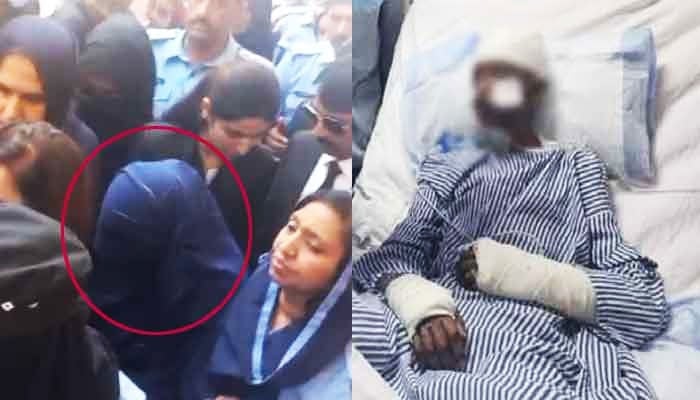Court Denies Bail for Judge’s Wife in Alleged Teenage House Help Torture Case. In a significant development, an additional district and sessions court in Islamabad has rejected the bail application of Somia Asim, the wife of Judge Asim Hafeez, in connection with a distressing case involving the alleged torture of a teenage domestic worker. This incident, which came to light recently, centers around accusations of severe physical abuse inflicted by Judge Asim Hafeez’s wife on the teenage house help named Rizwana.
The court proceeding saw Somia Asim appearing before Judge Shaista Kundi, accompanied by her legal representative Qazi Dastgir. Dastgir, during his arguments, pointed out a crucial detail in the case—the initial First Information Report (FIR) lacked a specific date of the incident. He proceeded to present compelling evidence from CCTV footage, highlighting that Somia Asim had handed over Rizwana to her mother. The footage also included scenes showing Rizwana in seemingly good health while seated and resting at a bus station.
Dastgir went on to assert that the accusations against Somia Asim were fabricated, raising pertinent questions about the alleged bug-infested wounds Rizwana had reportedly sustained at home. He queried the sudden disappearance of these wounds once Rizwana was at the bus station.
In response, Judge Shaista Kundi played the bus station video in the courtroom, urging Rizwana’s mother to provide an accurate account of the events that transpired at the bus station. Rizwana’s mother conveyed that Somia Asim had complained about Rizwana’s work performance and requested her return. However, attempts to engage Rizwana in a conversation about her work yielded no response.
Dastgir vehemently maintained that Somia Asim had not subjected Rizwana to any form of mistreatment and had, in fact, returned her to her parents in a safe and healthy condition.
Judge Kundi assured that meticulous records would be maintained and emphasized the unwavering commitment to uphold justice within her courtroom. Dastgir further prayed that Rizwana was never employed by Somia Asim. Judge Kundi noted that recent statements from Somia indicated she had provided monetary compensation to Rizwana.
Following a comprehensive exchange of arguments, the court decided to reserve its final verdict, which was subsequently delivered.
In a significant turn of events on August 7, Somia Asim, the wife of the civil judge, was taken into custody as her bail was revoked by the court. This development underscores a larger concern regarding child labor and exploitation, particularly in domestic settings. The court’s refusal to grant bail signifies a resolute step toward addressing these concerns and ensuring accountability for any potential wrongdoing. This case sheds light on the urgency of addressing child labor and abuse, calling for collective efforts to create a safer environment for vulnerable individuals.

